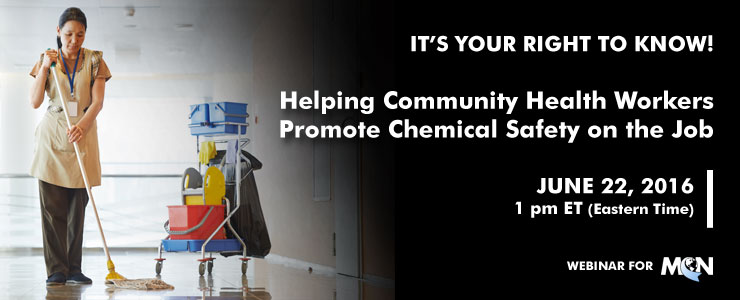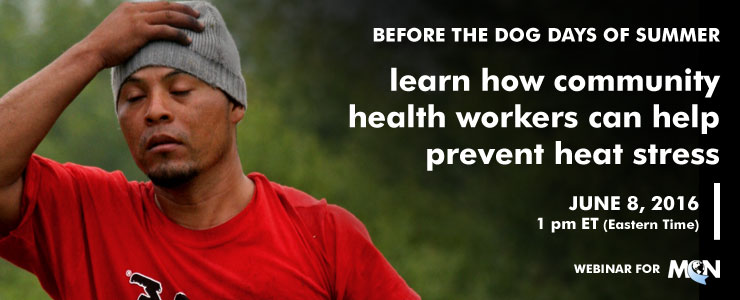
FECHA DE GRABACION: 1 de Febrero 2017, 1 pm ET (zona horaria del Este)
ORADORAS: Ileana Ponce-González, MD, MPH, CNC and Candace Kugel, FNP, CNM, MS
Crédito de educación continua
Para recibir credito de Trabajador/a de Salud Comunitaria o Educacion de Continua de Enfermera después de ver alguno de estos seminarios usted debe hacer lo siguiente:
- Completar la evaluación participante asociado a cada webinar
- Enviar un correo electrónico con su nombre y apellido indicando que ha completado a contedu@migrantclinician.org
Descripción
En este seminario se identificaran las dos medidas de rendimiento de HRSA relacionados con el cuidado del embarazo, así como los dos factores de riesgo únicos para las mujeres embarazadas de los trabajadores agrícolas migrantes. También se reflexionar sobre el papel de los trabajadores sanitarios de la comunidad para mejorar el acceso a la atención prenatal de las mujeres embarazadas.
Objetivos de aprendizaje
- Identificar dos medidas de rendimiento de HRSA relacionados con la atención durante el embrazo
- Reflexionar sobre el papel de los trabajadores de salud comunitarios para mejorar el acceso a la atención prenatal
- Identificar dos factores de riesgo únicos para las trabajadoras migrantes y embarazadas del campo
- Analizar la disposición de su propio lugar de trabajo en asistir mujeres embarazadas obtener acceso a la atención prenatal
Lectura Adicional
- NCBI PubMed: Early prenatal care and community health workers
This project is supported by the Health Resources and Services Administration (HRSA) of the U.S. Department of Health and Human Services (HHS) under cooperative agreement number U30CS09742, Technical Assistance to Community and Migrant Health Centers and Homeless for $1,094,709.00 with 0% of the total NCA project financed with non-federal sources. This information or content and conclusions are those of the author and should not be construed as the official position or policy of, nor should any endorsements be inferred by HRSA, HHS or the U.S. Government.



